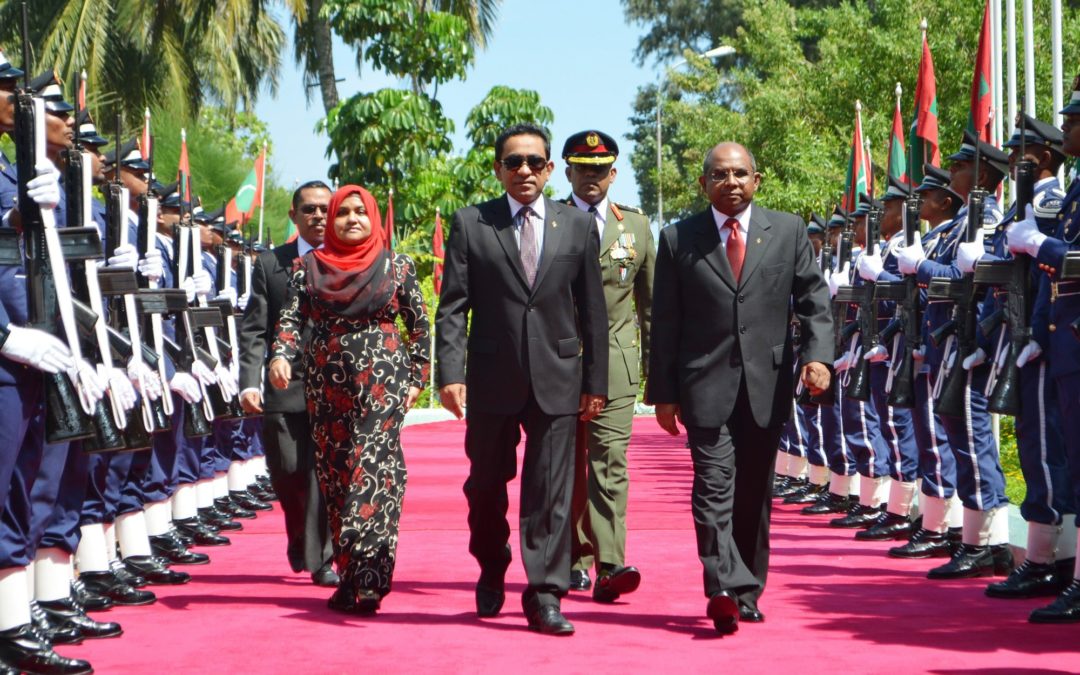SOURCE: The New Republic
DATE: July 30, 2018
SNIP: National crises make governments vulnerable to autocracy—a rather obvious assessment, perhaps, but one rarely seen in debates about climate change. Take the Maldives, an atoll nation in the Indian Ocean. Rising seawater is projected to consume most, if not all, of the country this century. In 2008, the Maldives chose its first democratically elected president, Mohamed Nasheed. Almost immediately, he made climate change preparations central to his administration. He announced plans to move 360,000 Maldivian citizens to new homelands in Sri Lanka, India, or Australia, and he promised to make the Maldives the world’s first carbon-neutral country. Nasheed also demonstrated a flair for the dramatic, staging an underwater Cabinet meeting that turned him into a viral climate celebrity. “What we need to do is nothing short of decarbonizing the entire global economy,” he said. “If man can walk on the moon, we can unite to defeat our common carbon enemy.”
In 2012, the military deposed Nasheed, forcing him to flee the country at gunpoint after mass protests over economic stagnation and spikes in commodity prices. His eventual successor, Abdulla Yameen, has since suspended parts of the constitution, giving himself sweeping powers to arrest and detain opponents, including two of the country’s five Supreme Court justices and even his own half-brother. Meanwhile, Yameen has tossed out Nasheed’s climate adaptation plans and rejected renewable energy programs, proposing instead to build new islands and economic free zones attractive to a global elite. “We do not need cabinet meetings underwater,” his environment minister told The Guardian. “We do not need to go anywhere. We need development.”
If any lesson can be drawn from the power struggle in the Maldives, it is that people who feel threatened by an outside force, be it foreign invaders or rising tides, often seek reassurance. That reassurance may come in the form of a strongman leader, someone who tells them all will be well, the economy will soar, the sea walls hold. People must only surrender their elections, or their due process, until the crisis is resolved. This is perhaps the most overlooked threat of climate change: Major shifts in the global climate could give rise to a new generation of authoritarian rulers, not just in poorer countries or those with weak democratic institutions, but in wealthy industrialized nations, too.

